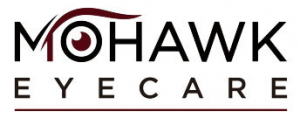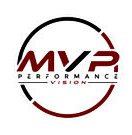 Whether you’re a professional athlete, an avid gamer, or a weekend warrior, enhancing your functional vision can significantly boost your performance. Dr. Carver's specialized and comprehensive sports vision assessment and training program at Mohawk Eyecare in New Castle is designed to optimize the visual and cognitive skills necessary for peak performance in any sport. In this blog, we will explore the importance of sports vision assessment, differentiate between visual and cognitive functions in sports, and delve into how improving these can enhance your overall athletic ability.
Whether you’re a professional athlete, an avid gamer, or a weekend warrior, enhancing your functional vision can significantly boost your performance. Dr. Carver's specialized and comprehensive sports vision assessment and training program at Mohawk Eyecare in New Castle is designed to optimize the visual and cognitive skills necessary for peak performance in any sport. In this blog, we will explore the importance of sports vision assessment, differentiate between visual and cognitive functions in sports, and delve into how improving these can enhance your overall athletic ability.
What is a Sports Vision Assessment?
A sports vision assessment comprehensively evaluates an athlete’s visual system. Unlike a regular eye exam, which primarily focuses on visual acuity (how clearly you see), a sports vision assessment examines various aspects of visual performance crucial for sports, including:
- Dynamic Visual Acuity: The ability to see clearly while in motion
- Eye Tracking: How smoothly and accurately your eyes follow moving objects
- Depth Perception: Judging the distance and speed of objects
- Peripheral Awareness: Seeing objects out of the corner of your eye
- Hand-Eye Coordination: The synchronization of visual input with hand movement
- Reaction Time: How quickly you respond to visual stimuli
Dr. Carver uses state-of-the-art technology and techniques to measure and enhance these visual skills, helping athletes gain a competitive edge.
Visual Function vs. Cognitive Function in Sports Performance
When it comes to sports performance, understanding the distinction between visual and cognitive functions is crucial. Both play vital roles, but they influence performance in different ways.
- Visual Function: This refers to the basic ability of the eyes to see and process visual information. It includes aspects like visual acuity, depth perception, and peripheral vision. Improving visual function can help athletes see more clearly and accurately, which is essential for any sport.
- Cognitive Function: This involves higher-level brain functions such as attention, memory, and decision-making. Cognitive function affects how quickly and accurately an athlete can interpret and respond to visual information. In sports, cognitive function is crucial for making quick decisions, anticipating opponents’ moves, and strategizing.
Visual and Cognitive Factors Affecting Sports Performance
Both visual and cognitive functions are interconnected and impact various aspects of sports performance. Here’s how:
- Reaction Time: Does eyesight affect reaction time? Absolutely. Improved visual function helps athletes detect and process visual cues faster, while enhanced cognitive function allows quicker and more accurate responses. For instance, a baseball player needs excellent reaction time to hit a fast pitch, which relies on sharp eyesight and quick cognitive processing.
- Hand-Eye Coordination: This is vital for sports like tennis, boxing, and basketball. Good visual function ensures that an athlete can track the ball or opponent’s movements. In contrast, cognitive function helps with timing and executing the perfect shot or punch.
- Depth Perception and Spatial Awareness: In sports such as soccer, hockey, and racing, depth perception is critical for judging distances and speeds accurately. Cognitive skills play a role in understanding and navigating the spatial dynamics of the playing field.
- Focus and Concentration: Athletes need to maintain focus under pressure. Visual function contributes to this by reducing visual distractions. In contrast, cognitive function helps stay mentally engaged and make split-second decisions.
Sports That Can Benefit from Vision Training
Dr. Carver’s sports vision assessment and training program can benefit athletes across various sports, including but not limited to:
- Ball Sports: Basketball, soccer, baseball, tennis, and volleyball players can improve their tracking, hand-eye coordination, and depth perception.
- Hockey: Players can benefit from enhanced peripheral awareness, reaction time, and eye tracking to better follow the puck and anticipate opponents' moves.
- Boxing and Martial Arts: Fighters can improve their reaction times, peripheral vision, and spatial awareness to gain an edge over opponents.
- Shooting Sports: Archery, rifle, and pistol shooters require precise visual skills and cognitive focus to improve accuracy and consistency.
- Gaming: Competitive gamers can benefit from improved reaction times, hand-eye coordination, and cognitive processing speed to excel in fast-paced gaming environments.
- Racing: Drivers in motorsports can enhance their depth perception, reaction time, and peripheral awareness to safely navigate tracks at high speeds.
Individual and Team Sports Vision Training Programs
Dr. Carver’s program is not a one-size-fits-all solution. It's tailored to meet the unique needs of both individual athletes and teams. Individual training allows for a personalized approach, focusing on specific areas where the athlete needs improvement. Team training sessions can be designed to enhance overall team performance by working on communication, coordination, and collective visual skills. This individualized approach ensures that each athlete feels valued and understood, leading to more effective results.
Ready to unlock your full potential and take your athletic performance to the next level? Dr. Carver’s sports vision assessment and training program at Mohawk Eyecare in New Castle offers a comprehensive approach to enhancing both visual and cognitive skills. Schedule your sports vision assessment today and start your journey toward improved performance and competitive edge!
FAQ
1. Is vision therapy effective?
Research has shown that vision therapy can be highly effective in many situations, including enhancing sports performance. The exact amount that vision therapy can help you depends on your situation and goals. We will determine how we can help you during your assessment.
2. Should I wear contact lenses when playing contact sports?
If you need vision correction, wearing contact lenses during contact sports is generally safe and often recommended over glasses. Contacts provide several advantages: they stay in place better, offer a wider field of vision, and eliminate the risk of glasses breaking and causing injury. Dr. Carver can help you choose the best option for your needs and ensure your vision remains clear and comfortable during your activities.

